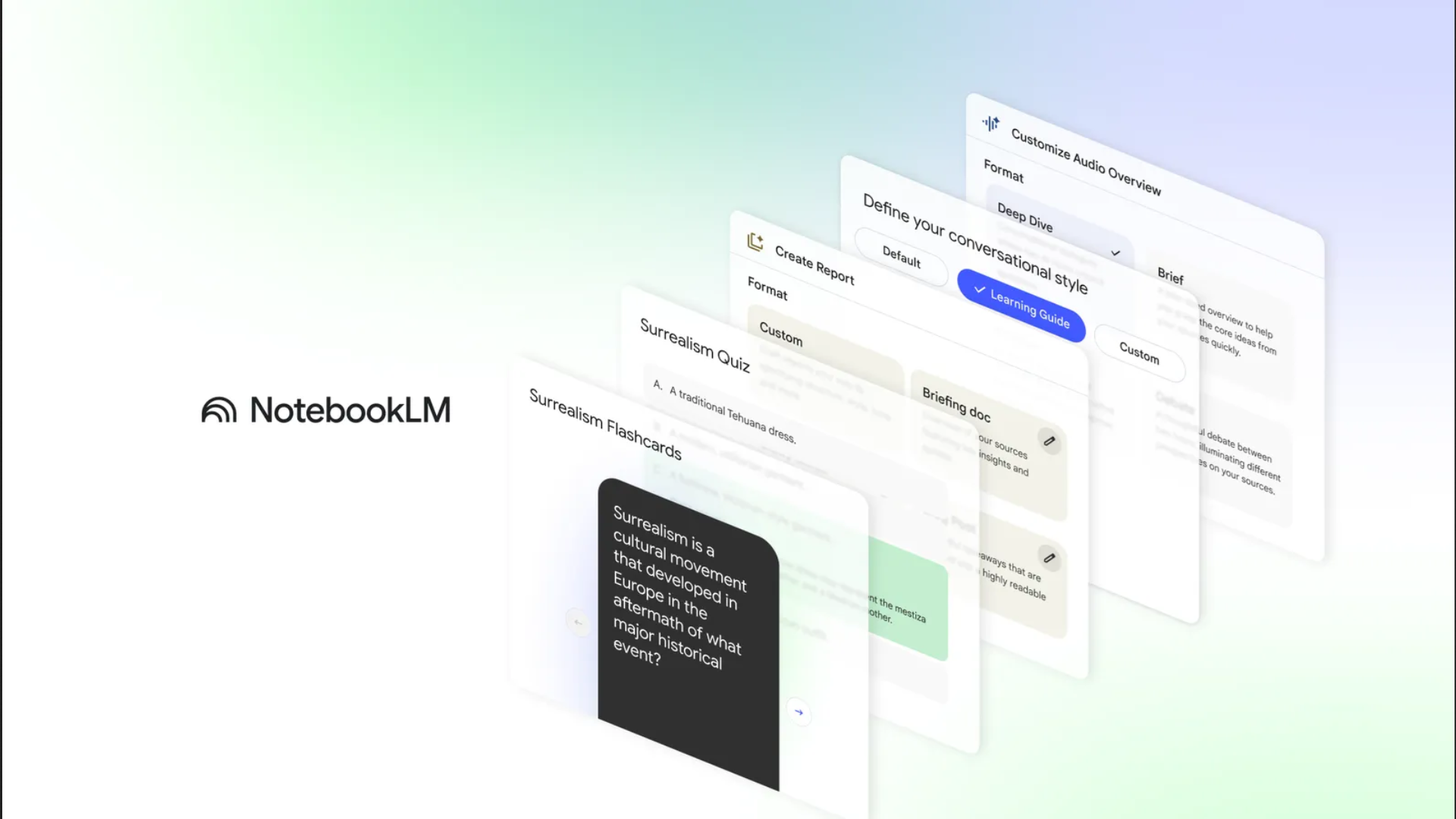I started using NotebookLM’s new quiz tools – and they’re actually great for learning
AI-powered quizzes, flashcards, and interactive feedback at your fingertips

- Google’s NotebookLM now generates flashcards and quizzes directly from your uploaded documents
- The study tools come complete with explanations and citations
- The new features expand NotebookLM from a passive summarization tool into a more active learning partner
Google is keen to get people using its AI-powered NotebookLM platform to learn in all kinds of ways. That now includes AI-written flashcards and quizzes to go with its other options for turning a mess of text into something you can actively learn from.
NotebookLM began as an AI assistant for students, but it’s since expanded into a broader hub for processing information across documents, written notes, and even YouTube videos into formats that might be more useful for learning. That means summaries, timelines, and even audio and video presentations.
The idea behind the new tools is a straightforward consideration that you should be engaging with material to learn it, not just trying to passively absorb it. The quiz features, along with dynamic flashcards and new report formats, are supposed to feel more like collaborating with someone than just reading a textbook. I tested it out with a mix of PDFs and transcripts on ancient Egypt, and with a few clicks, NotebookLM turned it into a customized set of flashcards. Each one was pulled from the content I uploaded and included key concepts, vocabulary, or dates. Flip the card and you'd see not only the right answer, but you'd get an option to ask for more explanation, complete with citations pointing to the exact line in the original source.
The quizzes work similarly, offering multiple-choice questions that pull from your content with varying degrees of difficulty. If you get a question wrong, the NotebookLM's quiz will tell you the right answer and even walk you through why you were off and how the concept fits into the bigger picture. I found myself repeatedly clicking “Explain,” not because I was failing the questions, but to see how the AI dealt with the explanations based on the information I uploaded.
It's not all one-size-fits-all, either. You can adjust the flashcards and quizzes to reflect whatever scope and complexity you wish, ranging from very basic definitions of the parts of a pyramid to more complex stories of the fall of the Middle Kingdom.
AI education
One of the smartest little touches: after a quiz session, you can generate a study guide or a new set of flashcards based on the questions you missed. It’s a feedback loop that mirrors the best parts of tutoring—but without the social pressure or the hourly rate.
But perhaps the biggest surprise is how natural all of it feels. NotebookLM doesn’t require a long setup. The AI pulls out structure, themes, and relevant points automatically. Of course, as with the other NotebookLM tools, it's only as good as the material you upload. I'm not putting in things about ancient aliens, but if I were a student, I would be sure to stick to reputable sources of information, not random blog posts or podcasts.
Sign up for breaking news, reviews, opinion, top tech deals, and more.
The quiz and flashcard tools are launching alongside a new suite of report-generation upgrades. NotebookLM can now suggest tailored outputs based on what you’ve uploaded. Share a draft of a novel, and it might recommend a critique of pacing or dialogue. Put in a policy brief, and it might spin up a persuasive list of debate talking points.
Compared to other AI tools with study features like ChatGPT’s Study Mode, NotebookLM sticking to its sources does make it pretty reliable. Everything it shows you is traceable to what you uploaded. That makes it particularly valuable for academic or professional material where accuracy matters. I'm not saying you might not just prefer to learn from reading the books yourself, but if you have a big stack of related books and articles, AI quizzes and flashcards might help make the material more digestible.
You might also like
- Google NotebookLM's AI podcast hosts can now get into an argument over your notes
- Google NotebookLM goes global with multilingual AI video summaries of your notes
- I tried using NotebookLM’s new AI Video Overviews and ended up with some usefully informative, but rather dull PowerPoint presentations
- I fed NotebookLM a 218-page research paper on string theory and the podcast results were mind-blowing

Eric Hal Schwartz is a freelance writer for TechRadar with more than 15 years of experience covering the intersection of the world and technology. For the last five years, he served as head writer for Voicebot.ai and was on the leading edge of reporting on generative AI and large language models. He's since become an expert on the products of generative AI models, such as OpenAI’s ChatGPT, Anthropic’s Claude, Google Gemini, and every other synthetic media tool. His experience runs the gamut of media, including print, digital, broadcast, and live events. Now, he's continuing to tell the stories people want and need to hear about the rapidly evolving AI space and its impact on their lives. Eric is based in New York City.
You must confirm your public display name before commenting
Please logout and then login again, you will then be prompted to enter your display name.

